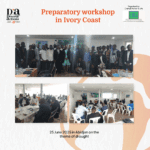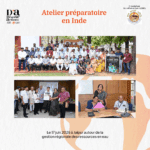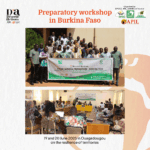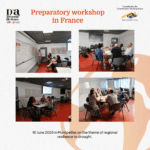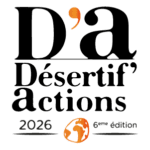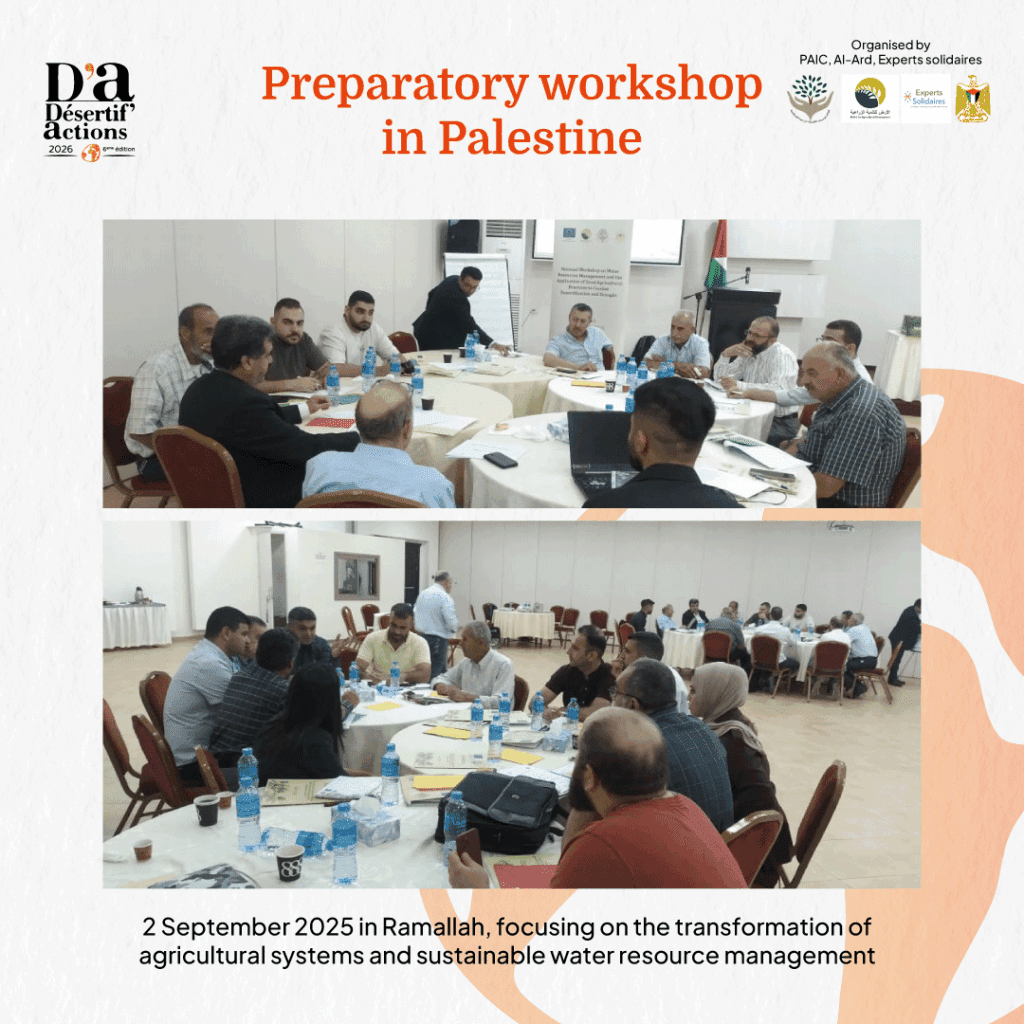
As part of preparations for the 2026 International Desertif’actions Summit, scheduled to take place from 25 to 28 March 2026 in Djerba (Tunisia), the Palestinian Agricultural Institutions Coalition (PAIC) organised a national workshop in Ramallah on 2 September at the Red Crescent Society Hotel.
The aim of this workshop was to strengthen the resilience of communities and territories to droughts by exploring two key themes: the transformation of agricultural systems and sustainable water resource management.
The event brought together 33 participants representing 18 institutions, ministries, NGOs, universities and community actors, who came to share their experiences and formulate collective proposals to combat desertification and strengthen water and food security in the region.
Multiple challenges in a context of structural drought
In a semi-arid climate highly exposed to the effects of climate change, Palestine faces recurrent droughts that undermine rural livelihoods. Participants recalled that water scarcity, land fragmentation and restrictions on access to natural resources linked to the Israeli occupation exacerbate the vulnerability of small-scale producers.
Despite these constraints, innovative local initiatives have been presented:
- promoting agroecology and no-till farming to improve soil fertility
- the revaluation of local seeds and the adoption of drought-tolerant crops (wheat, barley, chickpeas, etc.)
- the rational use of water through drip irrigation, rainwater harvesting and the reuse of treated wastewater
- the creation of pastoral reserves to restore grazing land and support livestock farmers
- the implementation of training programmes for young people and women on sustainable land management
Identified obstacles and proposed solutions
The discussions highlighted several structural obstacles:
- limited access to finance for smallholders
- land fragmentation and access restrictions due to occupation
- a lack of technical support and extension services
- poor institutional coordination
Faced with these challenges, participants proposed several courses of action:
- mobilise support from international donors to fund small-scale resilience projects
- strengthen local agricultural cooperatives and community water committees
- promote participatory governance and decentralisation of resource management
- support applied research on resilient crops and water-saving techniques
Advocacy messages for integrated land and water management
At the end of the group work, participants formulated several priority recommendations for public decision-makers and technical partners:
- Supporting rainwater harvesting and storage and local drought management planning
- Integrating drought resilience into national agriculture, water and environmental policies
- Increase funding for projects led by small producers and ensure equitable distribution of resources.
- Promoting accessible and innovative technologies, such as solar irrigation or soil moisture monitoring sensors.
- Strengthening research and scientific cooperation on agricultural techniques suited to arid areas
- Structure a multi-stakeholder dialogue between government, universities, civil society and the private sector for sustainable land governance.
These guidelines reflect the desire to build a common national advocacy for a more resilient, inclusive and sustainable Palestinian agriculture.
Inspiring local experiences
Several concrete examples illustrated the discussions, such as that of Za’atara, where the establishment of community pastoral reserves has increased fodder availability by 30%, or the problem of wild boars, responsible for the degradation of agricultural terraces, which was discussed, and collective fencing solutions were proposed.
Towards inclusive and participatory resilience
The workshop also highlighted the importance of including women, young people and vulnerable groups in resilience policies and programmes. These populations, often on the front line when it comes to water shortages and land degradation, must be recognised as key players in change.
The Palestinian Agricultural Institutions Coalition reaffirmed its commitment to document and disseminate the workshop results in Arabic and English, in order to inform public policy and fuel collective advocacy at the Désertif’actions 2026 Summit in Djerba.
Find all the recommendations in the full workshop report.
